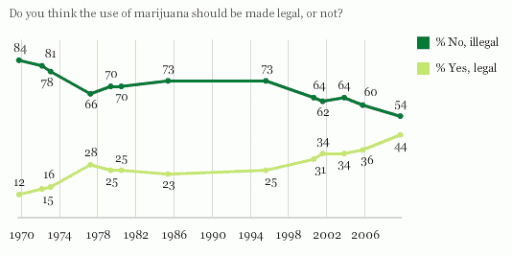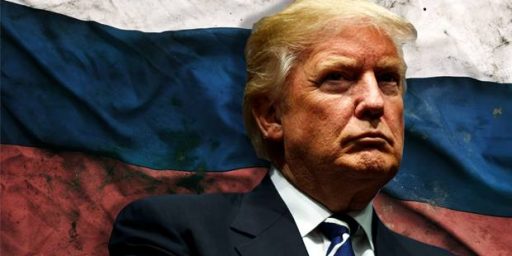Depoliticizing Crime and Decriminalizing Politics
 My latest for TCS Daily, “Depoliticizing Crime and Decriminalizing Politics,” is up.
My latest for TCS Daily, “Depoliticizing Crime and Decriminalizing Politics,” is up.
The intro: “The recent flap over the Bush Administration’s firing of eight U.S. attorneys has demonstrated the escalation of two related and unfortunate trends in American politics: the politicization of crime and the criminalization of politics.”
Much more at the link.






Great title–inspired by the Proudhon-Marx debate!
I may have more to say on this later, but a couple of quick points for discussion:
1) I take your general point about criminalizing politics. However, I would note that a good number of critics (myself included) have not actually alleged a crime.
This leads to:
2) By requiring that a situation only be scandalous if a crime is involved, are you not actually promoting the notion that the only way to “get” at someone is to find a crime? As I noted in a previous comment today, there is something scandalous about gross incompetence–and we are rapidly approaching that level in this story in terms of the DoJ’s handling of the situation (if not the firings themselves).
Further, as I noted at my place today, it is possible for something to be legal, yet still raise the question of whether it is appropriate or should be acceptable. There is something inappropriate, for example, of using a portion of the law supposedly there to maintain efficient prosecution of terrorism as a means of putting a crony in a job.
So, if we are to dismiss this whole affair as nothing because it was legal, does that not tell critics that the only way to get attention is to hunt for the illegal in an incident, and hence promotes the trend you are criticizing in your piece?
Further, as I noted at my place today, it is possible for something to be legal, yet still raise the question of whether it is appropriate or should be acceptable.
Sure. That’s the “depoliticizing crime” part of the piece.
We’ve come almost full circle to the days of the spoils system and cronyism. It’s a trend that’s been going on quite some time now but brought to high art under Clinton and then kicked up a notch under GWB.
It’s possible that we could come up with guidelines for political involvement with federal law enforcement officials that would help. Still, the nature of political appointments is what it is. It therefore makes more sense to stop having USA’s “serve at the pleasure of the president.”
As to the competence issue, you’re actually referenced on that:
You’re right that you’re not alleging that crimes were committed here. Many, many are. The “decriminalization of politics” part of the piece is an argument that the Democrats (and Republicans, too) should be criticizing the inept way this way handled and demanding answers. Instead, the instinct is to go instant nuclear and start talking about perjury, obstruction, subpoenas, and all the rest.
Here’s Josh Marshall, one of the least rabid of the lefty commenters on this:
Now, it may turn out to be something. More likely, it’ll turn out to be something less serious than the Plame scandal, in which charges of treason and burning deep cover agents for political spite were bandied about and no criminal wrongdoing was ever found. And the instinctive CYA mode that this criminalization has caused is then cited as proof of criminalization.
I suppose my general response would be that in these situations I tend to ignore, at least on one level, all of the more heated rhetoric and try to focus as best I can on the facts as they present themselves.
Yes, practically every little controversy has somebody, somewhere (often someone prominent) claiming that there was perjury or obstruction, etc. However, for politics to truly be criminalized we have to have a movement beyond the rhetoric to the courtroom–which has happened, granted, but it isn’t like everytime it is asserted somewhere that it ends up in court. I will also agree that the usage of special prosecutors fits the bill of criminalizing politics in large measure.
However, we part company, I think on the subpoena issue, as I don’t think that that has anything to do with criminalization, if we are talking about subpoenas to appear before Congress, as 1) appearing before Congress is not part of criminal investigation (although it could lead to one, I will grant) and, 2) Congress has the Constitutional role of oversight, which legitimately can require testimony, and sometimes testimony has to be compelled. That is not criminalization, that is legitimate congressional investigation.
In regards to the Marshall quote and CYA modes, the problem is there does appear to be a great deal of obfuscation that is curious, if not suspicious. If these were just no-big-deal firings of persons of presidential appointees, why is it that Congress was misinformed, the public was misinformed, no one can get their story straight and we still don’t have an easy answer?
Does Marshall jump perhaps too far in his assertions of why? Yes, I think he does (although I think there is a chance he is right). Still, to note this flurry of activity and lack of answers is not an undo attempt to criminalize politics. It is, in my opinion, a logical response to the mess that has been the DoJ and WH the last couple of weeks.
And in terms of the Plame case, the irony is that Libby would not have been put on trial had he been a tad less CYA-ish and just told the truth. Now, you know I think that that prosecution was pointless, but there is still no denying that Libby did screw himself in that investigation.
And in terms of the Plame case, the irony is that Libby would not have been put on trial had he been a tad less CYA-ish and just told the truth. Now, you know I think that that prosecution was pointless, but there is still no denying that Libby did screw himself in that investigation.
No question about that. I’m not sure I would have voted to convict Libby but there’s not much doubt that he was far from forthcoming. That has been the trend, though, the last several administrations.